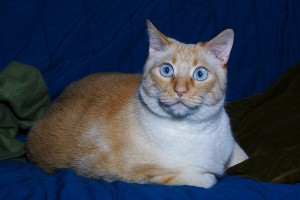surprise
[noun]
[de ver-ras-sing, de ver-ras-sing-en] ![]()
 Surprise, the DWOTD is back 🙂 After 2,5 months of chasing building constructors I have almost shooed the last one away (but not without delivering what was agreed 😉 ). And I realized that one shouldn’t wait with starting one’s new life until all external issues have been resolved. So the DWOTD is back. Time to start practicing your Dutch again!!
Surprise, the DWOTD is back 🙂 After 2,5 months of chasing building constructors I have almost shooed the last one away (but not without delivering what was agreed 😉 ). And I realized that one shouldn’t wait with starting one’s new life until all external issues have been resolved. So the DWOTD is back. Time to start practicing your Dutch again!!
(Photo: Michelle Tribe (flickr.com) – some rights reserved.)
‘Verrassing’ is often misspelled. Don’t forget: two r’s, and two s’s 🙂
Examples:
– “Ver-ras-sing!” – “Nou, jongens toch, dit had mamma echt niet verwacht!”
(“Sur-prise!!” – “Guys! No! Your mother really had not expected this!”)
– “Wat een ontzettend leuke verrassing zeg; dit had ik nooit durven dromen!”
(“What an incredibly nice surprise; I could never had dreamed this would happen!”)
– “Toen ze in het hotel aankwamen, wachtte hen een heel onaangename verrassing: hun kamer bleek niet meer beschikbaar te zijn.”
(“When they arrived at the hotel they were unpleasantly surprised: (it turned out) their room was no longer available.” Lit. “… a very unpleasant surprise awaited them…)
– “Je gaat me toch niet vertellen dat dit een verrassing voor je is! We hebben al diverse malen aangegeven dat je prestaties onder de maat zijn. Sorry, maar dan rest ons niets anders dan je te ontslaan.”
(“Surely you are not going to tell me that this comes as a surprise to you! Several times we have indicated that your performance is below standard. We’re sorry, but there’s nothing left for us to do than to fire you.” Lit.: “…that your achievements are below standard.” Note the use of “er rest [reflexive pronoun] niets anders dan…”: there’s nothing left to do to for [object pronoun] than…”)
– “Ik vind dit niet echt een leuke verrassing moet ik eerlijk bekennen. We hadden iets totaal anders afgesproken!”
(“To be honest I have to admit I do not (really) find this a nice surprise. We agreed on something completely different!”)
– “Je weet dat je vader niet van verrassingen houdt, dus hou het alsjeblieft een beetje bescheiden.”
(“You know your father doesn’t like surprises, so please keep it a bit modest.”)
Expressions:
– “Die zag ik (niet) aankomen”: I saw (did not see) that one coming / I knew (had no idea) that was going to happen.
Related words:
– Verrassen: to surprise [verb] [verraste, verrast].
– Onverwacht: unexpected(ly) [adjective/adverb].
– Verwachten: to expect [verb] [verwachtte, verwacht].
Example:
– “Ik had dit wel verwacht. Was het voor jou wel een verrassing dan?”
(“I kind of expected this. Are you saying you were surprised?” Lit. “Was it a surprise to you (then)?”)
– Surprise: surprise [noun] [de surprise, de surprises]. Typically only used in the context of the Sinterklaas tradition. Check out the post on Surprise for more information.
– Surpriseparty: surprise party [noun] [de surpriseparty, de surpriseparty’s]. Literally this would be a ‘verrassingsfeestje’ however it is not really a part of our culture, so we both imported the custom and and the word 🙂

Welcome back!!! 🙂
Days have not been the same without members of my extended family raising their eyebrows when I come out with a new Dutch word or phrase.
Hi Chris – Dankjewel, it’s good to be back 🙂 It’s time to ‘verras’ the extended family again!
Glad that you’re back! Missed your wit (is there a Dutch equivalent of “wit”?) — cute picture — is it you?
Hi Allison – no it’s not me, although I was equally cute. And a lot fatter to be honest 😉
Yes there is an equivalent for being ‘witty’ in Dutch:
– Hij is heel gevat, vind je niet?
(Het is very witty, don’t you think?)
‘Wit’ itself would translate as ‘gevatheid’. But that is used less often.
Uiteindelijk! Het leven in Nederland zonder guru’s was een beetje maar saai!
Dus dankzij de DWOTD is het iets minder saai? Dat is goed nieuws! 🙂
Aah finally you’re back! Prima!
Prima-deluxe!
Och! ik zou ‘goeroes’ hebben moeten schrijven! Guru’s bestaan niet!!